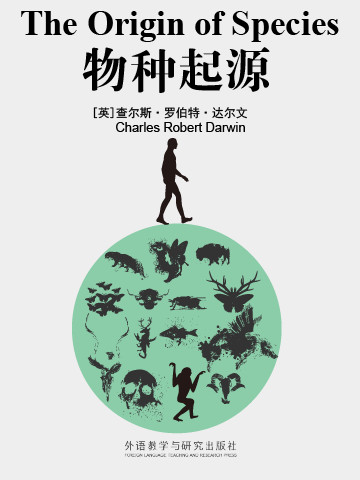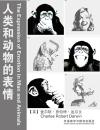“物竞天择,适者生存”,19世纪最具争议的著作。
This book is about the evolutionary theory, written for non-specialist readers and attracted widespread interest upon its publication. With the development of the modern evolutionary synthesis in the 1930s and 1940s, Darwin's concept of evolutionary adaptation through natural selection became central to modern evolutionary theory, and it has now become the unifying concept of the life sciences.
《物种起源》论述生物进化的重要著作,出版于1859年11月24日。该书大概是19世纪最具争议的著作,其中的观点大多数为当今的科学界普遍接受。在该书中,达尔文首次提出了进化论的观点。他使用自己在1830年代环球科学考察中积累的资料,达尔文试图证明物种的演化是通过自然选择(天择)和人工选择(人择)的方式实现的。
On the Origin of Species, published on 24 November 1859, is a work of scientific literature by Charles Darwin which is considered to be the foundation of evolutionary biology. Darwin's book introduced the scientific theory that populations evolve over the course of generations through a process of natural selection. It presented a body of evidence that the diversity of life arose by common descent through a branching pattern of evolution. Darwin included evidence that he had gathered on the Beagle expedition in the 1830s and his subsequent findings from research, correspondence, and experimentation
- Introduction
- Chapter 1—Variation Under Domestication
- Chapter 2—Variation Under Nature
- Chapter 3—Struggle for Existence
- Chapter 4—Natural Selection
- Chapter 5—Laws of Variation
- Chapter 6—Difficulties on Theory
- Chapter 7—Instinct
- Chapter 8—Hybridism
- Chapter 9—On the Imperfection of the Geological Record
- Chapter 10—On The Geological Succession of Organic Beings
- Chapter 11—Geographical Distribution
- Chapter 12—Geographical Distribution continued
- Chapter 13—Mutual Affinities of Organic Beings: Morphology: Embryology: Rudimentary Organs
- Chapter 14—Recapitulation and Conclusion























 京公网安备 11010802032529号
京公网安备 11010802032529号
笔记加载中...